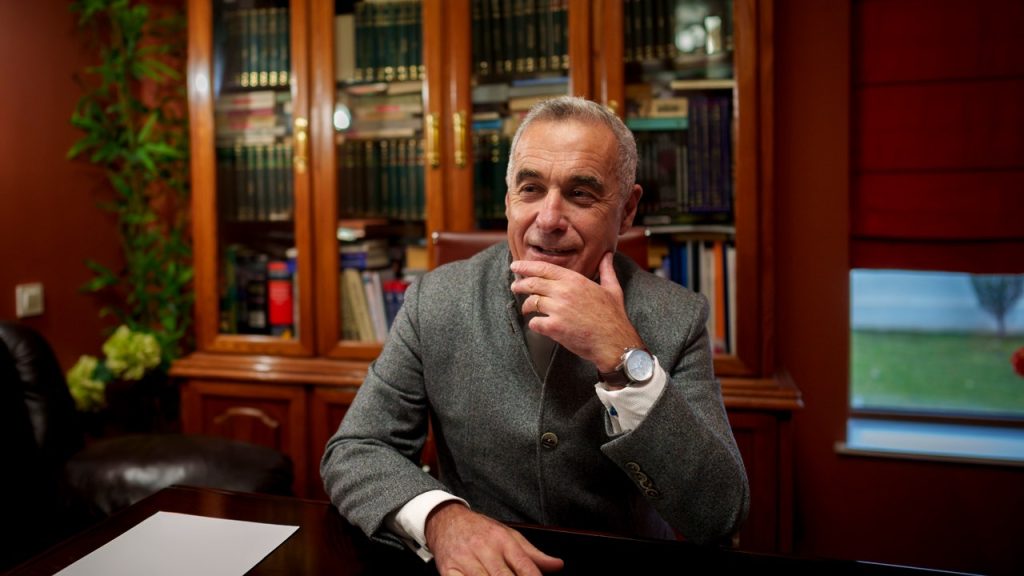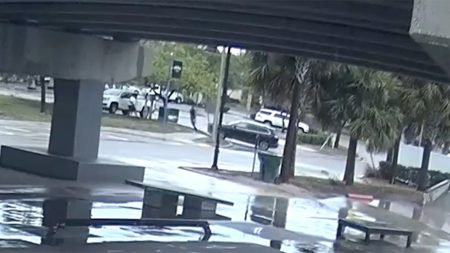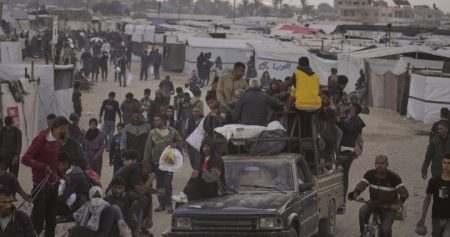The Romanian presidential election of 2024 has been plunged into unprecedented turmoil following revelations of alleged Russian interference, leading to the annulment of the first round of voting. This extraordinary development stems from declassified intelligence reports indicating a large-scale, coordinated social media campaign orchestrated by Russia to bolster the candidacy of Calin Georgescu, a far-right outsider who surprisingly emerged as the frontrunner. The Constitutional Court’s decision to invalidate the first round, a move deemed final and unprecedented, reflects the gravity of the situation and the perceived threat to the integrity of the democratic process. This decision has sparked intense debate and raised serious concerns about the vulnerability of elections to foreign influence, particularly in the digital age.
The declassified intelligence, originating from multiple Romanian security agencies, paints a picture of a sprawling online operation involving thousands of social media accounts across platforms like TikTok and Telegram, all working to amplify Georgescu’s presence and promote his candidacy. The allegations detail a sophisticated strategy leveraging social media algorithms and paid promotions to manipulate public opinion and artificially inflate Georgescu’s support. One startling revelation points to a single TikTok user allegedly spending over $381,000 to pay other users for promoting Georgescu’s content. This coordinated effort raises serious questions about the transparency and accountability of social media platforms and their role in safeguarding democratic processes from manipulation.
The decision to annul the first round has been met with mixed reactions. While some, including Prime Minister Marcel Ciolacu, believe it was the only viable course of action given the extent of alleged foreign interference, others have expressed concerns about the implications for democratic norms. Reformist candidate Elena Lasconi, who was set to face Georgescu in the runoff, strongly condemned the decision, arguing that it disregards the will of the Romanian people. Lasconi maintains that the issue of Russian interference should have been addressed after the completion of the election, emphasizing the importance of respecting the votes cast by millions of Romanian citizens. This clash of perspectives highlights the complex balance between safeguarding democratic integrity and upholding the principle of respecting election outcomes.
The annulment casts a long shadow over the Romanian political landscape, raising fundamental questions about the resilience of its democratic institutions in the face of foreign interference. Cristian Andrei, a Bucharest-based political consultant, aptly described the situation as a “crisis mode” for Romanian democracy, underscoring the uncharted territory the country now finds itself in. The unprecedented nature of the events has exposed vulnerabilities in the electoral system and prompted calls for a thorough investigation to identify those responsible for the alleged interference and implement measures to prevent future occurrences. The focus now shifts to strengthening institutional safeguards and ensuring the integrity of future elections.
Georgescu’s unexpected success in the first round, coupled with the subsequent allegations of Russian interference, has intensified scrutiny of his campaign and his online presence. His substantial following on TikTok, with millions of likes and followers, has raised eyebrows, particularly given his declared zero campaign spending. Experts suspect that his online popularity may have been artificially inflated, potentially through coordinated efforts linked to the alleged Russian campaign. Furthermore, allegations of preferential treatment by TikTok towards Georgescu, as suggested by Romania’s top security body, add another layer of complexity to the unfolding saga. These developments underscore the growing influence of social media in elections and the potential for its manipulation to distort democratic processes.
The Romanian presidential election saga has become a stark reminder of the challenges democracies face in the digital age, where disinformation and foreign interference can easily spread and manipulate public opinion. The case highlights the urgent need for robust mechanisms to detect and counter such threats, including greater transparency and accountability from social media platforms. The annulment of the first round, while controversial, underscores the commitment of Romanian authorities to protect the integrity of their democratic institutions. Moving forward, the focus must be on investigating the full extent of the alleged interference, holding those responsible accountable, and strengthening the resilience of the electoral system to prevent similar incidents in the future. The events in Romania serve as a cautionary tale for democracies worldwide, highlighting the importance of vigilance and proactive measures to safeguard the integrity of electoral processes in an increasingly complex digital landscape.










